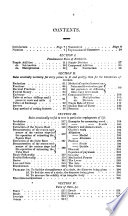 | Daniel Adams - Arithmetic - 1819 - 236 pages
...neither party shall sustain loss. RULE. Multiply each payment by the time at which it is due ; then divide the sum of the products by the sum of the payments, and the quotient wfll be tho equated time. Bb 1. A owes B paid in 10 months ; 96 dollars to be paid in 7 months ; and... | |
 | John Mason Good - 1819 - 822 pages
...by either party. '1 he rule commonly given is, lo multiply each payment by the time at which it is due; and divide the sum of the products by the sum of the payments, for the time required. But this rule is not accurate, as was first »liown, we believe, by Mr. Malcolm,... | |
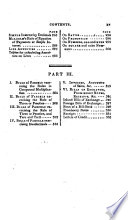 | Thomas Keith - Arithmetic - 1822 - 354 pages
...Multiply the first supposition by the second error, and the second supposition by the first error, and divide the sum of the products by the sum of the errors, if they are differently marked ; or the difference of the products by the difference of the... | |
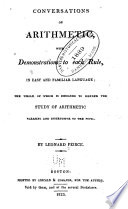 | Leonard Pierce - Arithmetic - 1823 - 170 pages
...by which payments are generally equated. Multiply each payment by the time at which it is due ; then divide the sum of the products by the sum of the payments, and the quotient will be the time required. * This rule is founded on the supposition, that the snm of the interests of the several debts, which... | |
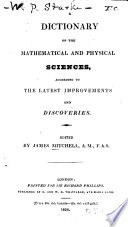 | James Mitchell - Mathematics - 1823 - 666 pages
...bodies placed in a right line. Multiply each body by its distance from some fixed point in the line, and divide the sum of the products by the sum of the bodies, the result is the distance of the centre from the point. Prop. 2. If perpendiculars be drawn... | |
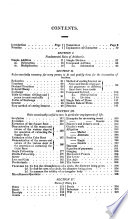 | Daniel Adams - Arithmetic - 1824 - 226 pages
...neither party shall sustain loss. RULE. Multiply each payment by the time at which it is due ; then divide the sum of the products by the sum of the payments, and the quotient will be j the equated time. Bb ' EXAMPLES. 1. A owes B 136 dollars to be 2. I owe g6u,125, to be paid i in... | |
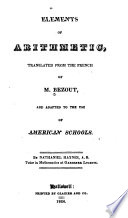 | Etienne Bézout - Mathematics - 1824 - 238 pages
...this operation. Multiply each payment by the time, at which it becomes due f divide the sum. of these products by the sum of the payments, and the quotient will be the time sought. Phis rule, though sufficiently accurate for business, is not strictly true ; for although by... | |
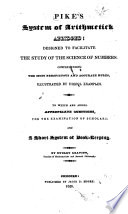 | Nicolas Pike, Dudley Leavitt - Arithmetic - 1826 - 214 pages
...neither party shall sustain loss. RULE. — Multiply each payment by the time at which it is due ; then divide the sum of the products by the sum of the payments, and the quotient will be the equated time.* *This rule is founded on a supposition, that the sum of the interests of the several... | |
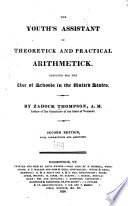 | Zadock Thompson - Arithmetic - 1826 - 176 pages
...loss shall be sustained by either party. RULE.t — Multiply each payment by the time at which it is. due, and divide the sum of the products by the sum of the payment, and the quotient will be the time required. * You divide by 26, because the trett is one twenty-sixth.... | |
 | Nicolas Pike, Dudley Leavitt - Arithmetic - 1826 - 222 pages
...neither party shall sustain loss. RULE. — Multiply each payment by the time at which it is due ; then divide the sum of the products by the sum of the payments, and the quotient will be the equated time.* * This rule is founded on a supposition, (hat the sum of the interests of the several... | |
| |